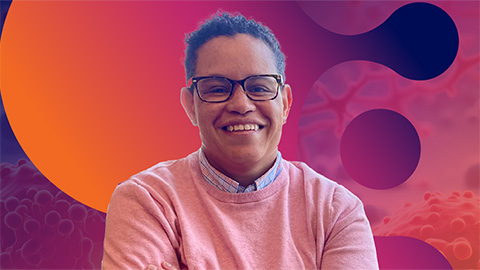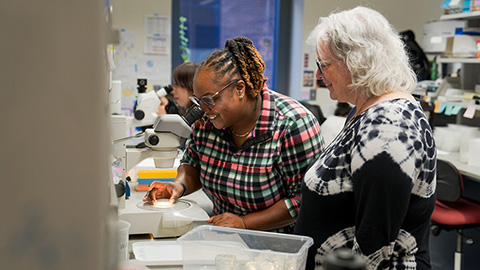The impacts of COVID-19 on women’s physical health
Now that we are more than a year into the COVID-19 pandemic and the light at the end is shining bright, I thought it would be interesting to look at how the disease has specifically affected women’s health. This is, after all, National Women’s Health Week.
From the very beginning of the pandemic, it was clear that COVID-19 did not affect everyone the same way. A February 2020 report from the Chinese Center for Disease Control and Prevention showed that older people and people with underlying conditions were getting sicker than younger and healthier people. It took longer for the effect of sex to become apparent, but by July 2020 it was clear that more men were dying from the disease than women.
Since then, we have learned a lot more about COVID-19 and the possible effects that it has on women’s health.

COVID-19 and pregnancy
A recent article in the journal Physiological Reviews summarized what we know about how COVID-19 affects pregnant people.
Early in the pandemic, pregnant people were advised to take special precautions to avoid getting infected. In fact, the International Federation of Gynecology and Obstetrics recommended that routine prenatal care visits should be canceled or done via video or telephone. The reason for this advice was that pregnant people have a greater risk of developing severe disease when infected with other coronaviruses, such as those that cause severe acute respiratory syndrome (SARS) and Middle Eastern respiratory syndrome (MERS).
During pregnancy, the body changes in a number of ways to create a better environment for the growing fetus. Some adaptations to pregnancy have the potential to influence the body’s reaction to COVID-19. For example, the lungs change in a way that may increase the risk for severe infection, and there are changes that make blood clots more likely. A lot of attention was given to changes to the immune system of pregnant people, which make inflammation less likely, but it is still hard to know how this affects the outcome of the disease. On the one hand, these changes could result in the body having a harder time clearing the virus. On the other hand, they could attenuate severe COVID-19 symptoms that are caused by an overreaction of the immune system.
In general, we still do not have enough data to know for sure how COVID-19 affects pregnant people. Most pregnant people who get COVID-19 have no symptoms or experience mild disease with no lasting consequences. Some medical centers have reported an increase in hospital admissions for pregnant people, while others have not. More data are needed to understand the differences between the two.
COVID-19 and periods
There have been various reports of people experiencing changes to their periods while sick with COVID-19 and even after they have cleared the infection.
These menstrual changes include both lighter and heavier flow, longer periods, irregular periods and bigger blood clots. Although some of these changes have been reported in peer-reviewed papers, there are not many studies available that explain what is happening.
Some people have changes in sex hormone levels during infection with COVID-19. This could help explain period changes while people are sick. But it does not explain changes that people experience after they have cleared the infection.
Some people experience debilitating symptoms — such as fever, fatigue or headaches — for weeks after clearing the infection with COVID-19. This is being called “long COVID” and the people who have it “long-haulers.” More women report these than men (about 80% of those reporting long COVID symptoms are women).
People with long COVID report changes to their menstrual cycles, which can be further debilitating. It is not yet clear what causes the changes in the menstrual cycle seen with long COVID. Doctors raise various hypotheses, such as increased stress and hormonal changes caused by the infection. There is also the possibility that some people might have other undiagnosed diseases.
For the past year, access to regular, non-COVID related, medical care has diminished significantly, which means that lots of people are not getting the care they need.
COVID-19 vaccines
Women also experience more severe side effects after taking the vaccine. The reasons for this are, once again, unclear. The same effect is seen with other vaccines.
It is possible that women report more side effects than men. But women also have more autoimmune diseases than men and are known to have more reactive immune systems. For example, antibody responses are up to two times higher in women than in men. These differences are more notable in young adults, indicating that there may be a link between a more active immune system and higher levels of sex hormones.
Another interesting hypothesis that might explain these sex differences in the immune system is that many immune-related genes are on the X chromosome, which women have two of while men have only one.
Usually, one of the X chromosomes is inactivated in every cell to avoid a double dose of the genes contained in it. However, there is evidence that 15% of the genes in the second X chromosome in women escape inactivation and are more highly expressed.
Finally, women metabolize drugs differently than men and often need lower doses for the same effect. Normally, the optimum dose for different groups is tested during clinical trials. But this was not done in the trials for the COVID-19 vaccines. Until different dosing regimens are tested, it is important to let women know of the possible side effects and that these are a sign that the vaccine is working.
On a brighter note, there have been reports that some people with long COVID feel better after taking the vaccine. It is too early to tell what is going on, as this is a very new development. What we know is that only some people feel better, while others feel no difference, and a few people feel worse. Doctors and scientists have a few hypotheses to explain what is happening, from the vaccine helping the body eliminate remnants of the virus, to this being a temporary respite that we sometimes see with other vaccines. I am excited to see the results coming out from these studies in a few months.
Enjoy reading ASBMB Today?
Become a member to receive the print edition four times a year and the digital edition monthly.
Learn moreGet the latest from ASBMB Today
Enter your email address, and we’ll send you a weekly email with recent articles, interviews and more.
Latest in Science
Science highlights or most popular articles

Life in four dimensions: When biology outpaces the brain
Nobel laureate Eric Betzig will discuss his research on information transfer in biology from proteins to organisms at the 2026 ASBMB Annual Meeting.

Fasting, fat and the molecular switches that keep us alive
Nutritional biochemist and JLR AE Sander Kersten has spent decades uncovering how the body adapts to fasting. His discoveries on lipid metabolism and gene regulation reveal how our ancient survival mechanisms may hold keys to modern metabolic health.

Redefining excellence to drive equity and innovation
Donita Brady will receive the ASBMB Ruth Kirschstein Award for Maximizing Access in Science at the ASBMB Annual Meeting, March 7–10, just outside of Washington, D.C.

Mining microbes for rare earth solutions
Joseph Cotruvo, Jr., will receive the ASBMB Mildred Cohn Young Investigator Award at the ASBMB Annual Meeting, March 7–10, just outside of Washington, D.C.

Fueling healthier aging, connecting metabolism stress and time
Biochemist Melanie McReynolds investigates how metabolism and stress shape the aging process. Her research on NAD+, a molecule central to cellular energy, reveals how maintaining its balance could promote healthier, longer lives.

Mapping proteins, one side chain at a time
Roland Dunbrack Jr. will receive the ASBMB DeLano Award for Computational Biosciences at the ASBMB Annual Meeting, March 7–10, just outside of Washington, D.C.

